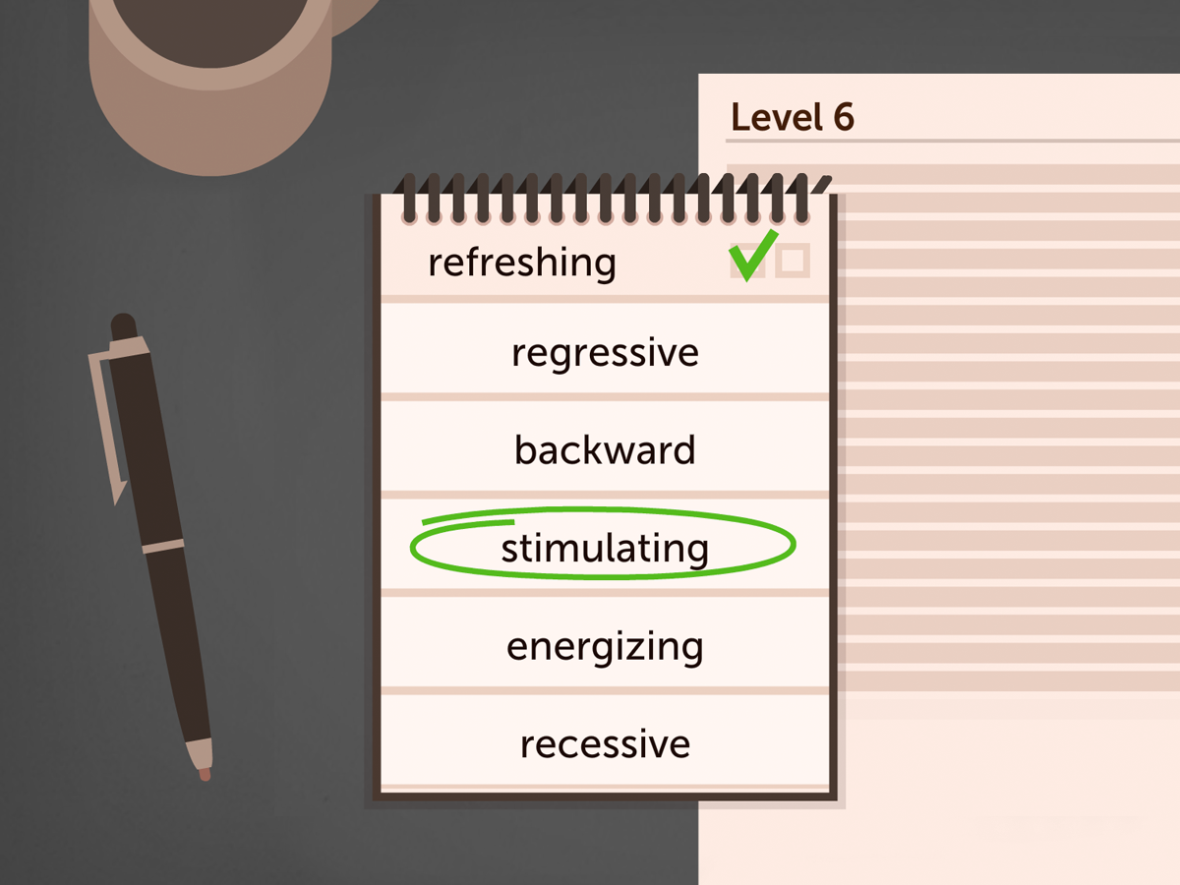
The Role of Dictionaries in Editor's Choice
Available online at lumosity.com and in our mobile apps, Editor’s Choice asks you to think of yourself as a newspaper editor. At the top of your notepad, you’ll find one word -- the “headword” -- followed by a list of potential synonyms. For instance, you may be given the word “sensible,” followed by “innocent, reasonable, holy, divine, realistic.” You’ll have to access your “mental thesaurus,” recalling sensible’s definition and determining the words that could replace sensible in the article you’re editing. (In case you’re wondering, reasonable and realistic are the correct choices in this example.)
But how did we decide on which words and synonyms to use in the game? With the help of dictionaries and thesauruses. Ethan, the Games Engineer who worked on Editor’s Choice, combed dictionaries and thesauruses for suitable words for the game. In particular, Ethan wanted to ensure that the vocabulary practiced in the game would be as universally helpful as possible: technical terms and jargon were excluded. Ethan explained that ultimately he gravitated towards words having to do with social relationships and emotional expression: “I chose vocabulary that I thought most people could practice and recognize situations in their own life where they could apply the synonyms.”
After cross-referencing various dictionaries and thesauruses, Ethan ultimately wrote his own thesaurus of 1,000 headwords and their synonyms for about 11,000 words total (he modestly calls this “small”). The game works by pulling a headword for each round (“sensible” in the above example) and then pulling one or two synonyms for sensible, along with synonyms for other headwords that work as “distractors.” Throughout his research, Ethan noticed that many thesauruses have different opinions on what constitutes synonyms for specific words -- some thesauruses only list very close synonyms, while others list more indirect synonyms. He studied dictionaries to understand the nuances of his selected words and their synonyms, deciding which synonyms would and would not be included in Editor’s Choice based on his understanding of Lumosity players’ expectations.
After working with a Research Scientist and Games Artist to finalize Editor’s Choice, Ethan released the game to users in beta mode. Beforehand, Ethan made some educated guesses to rank his headwords from easiest to most difficult, but beta playing was crucial for understanding how to sequence the different vocabulary so the game increased with difficulty with each level. With thousands of people playing Editor’s Choice in beta, Ethan was able to gather gameplay data like players’ accuracy and response-time quickly, and this information helped him refine his ranking of headwords to reflect users’ experience. All in all, Ethan analyzed user data and updated his rankings accordingly half-a-dozen times before releasing the game to all users.
Although the response to Editor’s Choice has been overwhelmingly positive, the team has continued to polish the game based on user feedback. Some of the original headwords have multiple, unrelated meanings -- take “sanguine,” for instance, which can mean “blood-red” or “optimistic.” Because Editor’s Choice doesn’t include definitions, we wondered if words like sanguine might prove confusing. Matt, a Content Editor, spearheaded a project to mitigate these instances of confusion.
“Ultimately, we want players to be able to gauge the meaning of words -- familiar or new -- from their synonyms, and vice versa,” Matt said. “Developing Editor’s Choice required a soft human touch: Ethan’s work on choosing words and appropriate leveling, and mine on addressing user pain points.”
